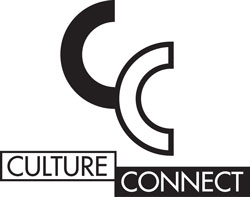Cultural Adaptation: Relationships are Priority #1
By Don Rutherford
An expatriate engineer from Calgary arrives at his office in Rio de Janeiro. He is good at what he does and doesn’t like to waste time. As he walks down the hall, he sees a few local colleagues chatting by the water cooler. They greet him and ask him to join them for a chat about last night’s football game. But the engineer says “hi” and “sorry, I have a lot of work to do” then heads for his office. The engineer is confused when he subsequently hears via the grapevine that the locals think he may not work out in the Rio office.
An expatriate manager from Calgary is at a dinner party in Jakarta. The Indonesian man seated next to her doesn’t appear to be very senior. However, they engage in a conversation. Soon, they are swapping stories about scuba diving, which they have in common, and are getting to know each other. At a meeting in the office the next day, the manager is surprised to see her new friend enter the board room as a senior representative of the government’s oil ministry. They smile and look forward to working with each other.
The difference between the approaches in the scenarios above may seem small, but the consequences are dramatic. A positive relationship, especially in international work, is the difference between business success and disaster. For most of the world’s people (North America being the most visible exception), developing a good relationship precedes business dealings.
Some people seem to be born relationship-builders. The rest of us have to work at it.
How can you build better relationships and further your business success?
- Prepare before you arrive – facts – you shouldn’t have to ask the most popular sport, the leading religion, the official language, the President’s name
- Prepare before you arrive – beliefs & practices – communication style differences, handling conflict, value differences that impact business
- At times, put business concerns to the side and show genuine interest in the people you meet
- Make a friend, then another, then another
- Whether it is your driver, the receptionist or the president of the national oil company, show interest and respect
- Discover what you have in common
- Laugh a little
- Use your relationships to help learn about your client and your competition
- But don’t abuse your friendship.
Relationship-building is so essential to one’s international job success, that some believe it will one day be part of a routine job description for working internationally. Before asking how the technical work is progressing, a manager will ask how many new relationships the employee has built, how s/he has deepened existing ones and how s/he has been participating in the local culture. The manager will then ask local colleagues to give their impression of how well the expatriate is working out.
By consciously building on our natural relationship-building skills, we all can make significant improvements. Not only do we achieve greater business success, the process becomes much more enlightening and fun!
Don Rutherford is a cross-cultural trainer and consultant. He can be reached at don@culture-connect.com.
